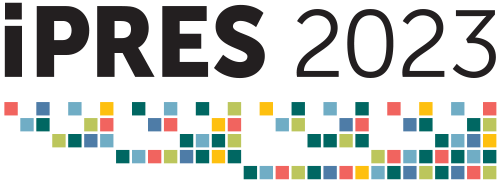Title: The Curricular Asset Warehouse At The University Of Illinois: A Digital Archive’s Sustainability Case Study
Author(s): Remco van Veenendaal, Lotte Wijsman, Jacob TakemaKarin Hodgin Jones, Jimi Jones, Robyn Bianconi and Liam Moran and Marin Rappard
Abstract: What happens to the devices that host digital objects – hard drives, monitors, computer peripherals, storage media – when it’s time to upgrade digital preservation environments and workflows? Each step of the production and stewardship of digital objects requires devices and software that have relatively short life cycles and multiple drivers of ever faster obsolescence. These devices flow out of digital repositories and contribute to the fastest growing waste stream of the 21st century: electronic waste or “e-waste.“
The Center for Innovation in Teaching and Learning (CITL) at the University of Illinois at Urbana-Champaign is currently working with the head of the university’s Sustainable Design program to perform a case study of the sustainable management of its large volumes of digital video and image content production and preservation, within an analysis of its institutional purchasing and waste management paradigms. The purpose of this analysis is to determine how device obsolescence at CITL can be mitigated in order to avoid future costs and to minimize the department’s contribution to the global e-waste problem.
Type: Panel
————————————-
Title: Calculating the Carbon Footprint of Digital Preservation – A Case Study
Author(s): Mikko Tiainen, Juha Lehtonen, Heikki Helin and Johan Kylander
Abstract: Environmental sustainability is becoming an important factor in digital preservation. We have calculated the carbon footprint of our Finnish national digital preservation services, which we provide for cultural heritage and research sectors. We concentrate on the carbon footprint of manufacturing hardware and shipping the equipment to data centers, and the carbon footprint of the hardware service life and employees related to the services. Using data provided to us by the hardware manufacturers and other sources, we show that the majority of the emissions come from manufacturing and shipping of hardware, whereas the emissions created during the service life has a smaller role. As a whole, the annual carbon footprint of the services is smaller than the annual carbon footprint of three average Finns.
Type: Short Paper
————————————-
Title: Rescuing Legacy Digital Collections: Lessons Learned from Migrating Historical Bespoke Digital Collections
Author(s): Kayla Maloney, Katrina McAlpine and Jennifer Stanton
Abstract: The University of Sydney Library hosts many historically significant digital collections. In 2021 and 2022, the Library undertook a project to ensure the accessibility of these collections, migrating them from ageing web servers to our current repository systems. This paper outlines the challenges involved in managing bespoke legacy collections at an institution in the early stages of building digital preservation capacity. We discuss the approaches taken to make use of existing systems, capabilities, and resourcing to rescue collections and prepare for future preservation actions.
Type: Short Paper
Event Timeslots (1)
Wednesday, September 20
-
SUS-4
